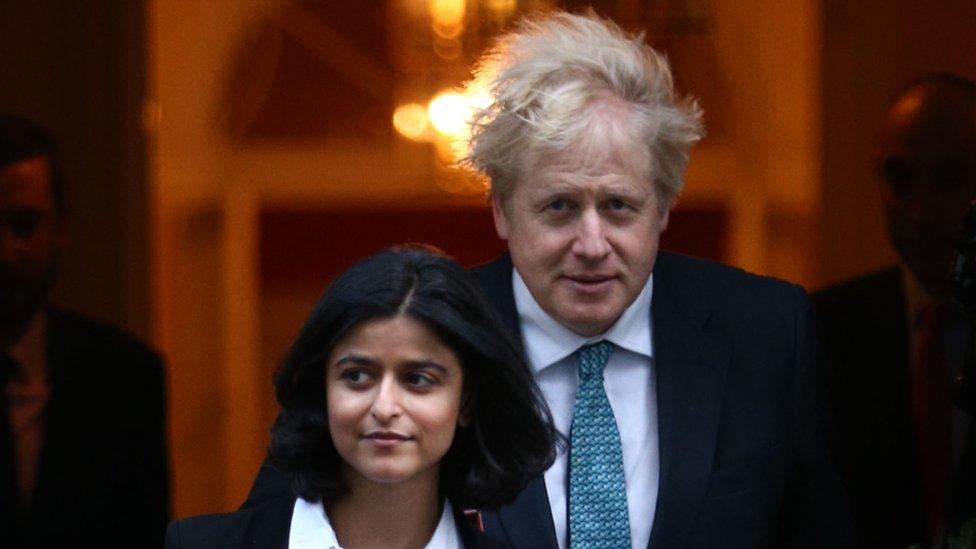What do key resignations mean for PM?
- Published

Munira Mirza, the prime minister's policy chief, was one of four senior aides to quit on Thursday
The chief of staff, the chief of communications, the official who runs the prime minister's private office, and his policy chief - all gone. A quartet of departures from No 10.
In the words of one senior backbencher, not just a nightmare on Downing Street but a total meltdown.
Yet two different things happened on a turbulent day. The first three paid the price for the fiasco over lockdown gatherings - one sending the invite to the garden drinks, the other two crafting Boris Johnson's bungled response to weeks of damaging claims.
Mr Johnson's backers claim it's evidence that he'll keep his vow - "I get it, I will fix it" - that No 10 can become the home to a new and improved operation.
The resignation of Munira Mirza is of a very different order. For more than 10 years she's been one of Mr Johnson's true political friends - described as "Boris' brain" by one former colleague, an ally of ideas.
Her choice to take a public stand after staying loyal during so many controversies sends a message loud and clear - even one of the prime minister's closest backers believes it is enough.
It's suggested the three men's departures were fast forwarded to help soften the sharpness of Ms Mirza's attack, MPs cajoled to display their pleasure in tweets online that Mr Johnson was sticking to his promise to clear out No 10.
Yet those obvious political plays don't mask the sense of instability around No 10. Tory MPs who wanted to be reassured are likely to be rattled instead. His allies who have rallied support for him in the last couple of weeks have bolstered his operation.
But some MPs are privately turning against their approaches, one joking they are wannabe "Peaky Blinders" trying to threaten colleagues to behave. The almost immediate leak of their plea to MPs to welcome the No 10 changes show as much.
And all the while those who want the prime minister gone gather and prepare. There seems no one grand plot to oust the PM from office. Alliances are shifting. There's no one clear alternative, let alone one unifying idea.
And the Tories' long-standing reputation for ruthless removals of leaders does not always ring true. Older heads remind restive colleagues how long it took for Theresa May to go, even after losing a majority, even after a confidence vote.
Others fear a bungled attempt to force Mr Johnson out would trap the party in a terrible limbo. Others believe that when it comes to campaigning it would be insane to lose Mr Johnson's clout.
But every mistake or misjudgement provides more evidence to those who want him gone.
And for the prime minister's backers, it becomes harder for them to argue that he ought to stay.
